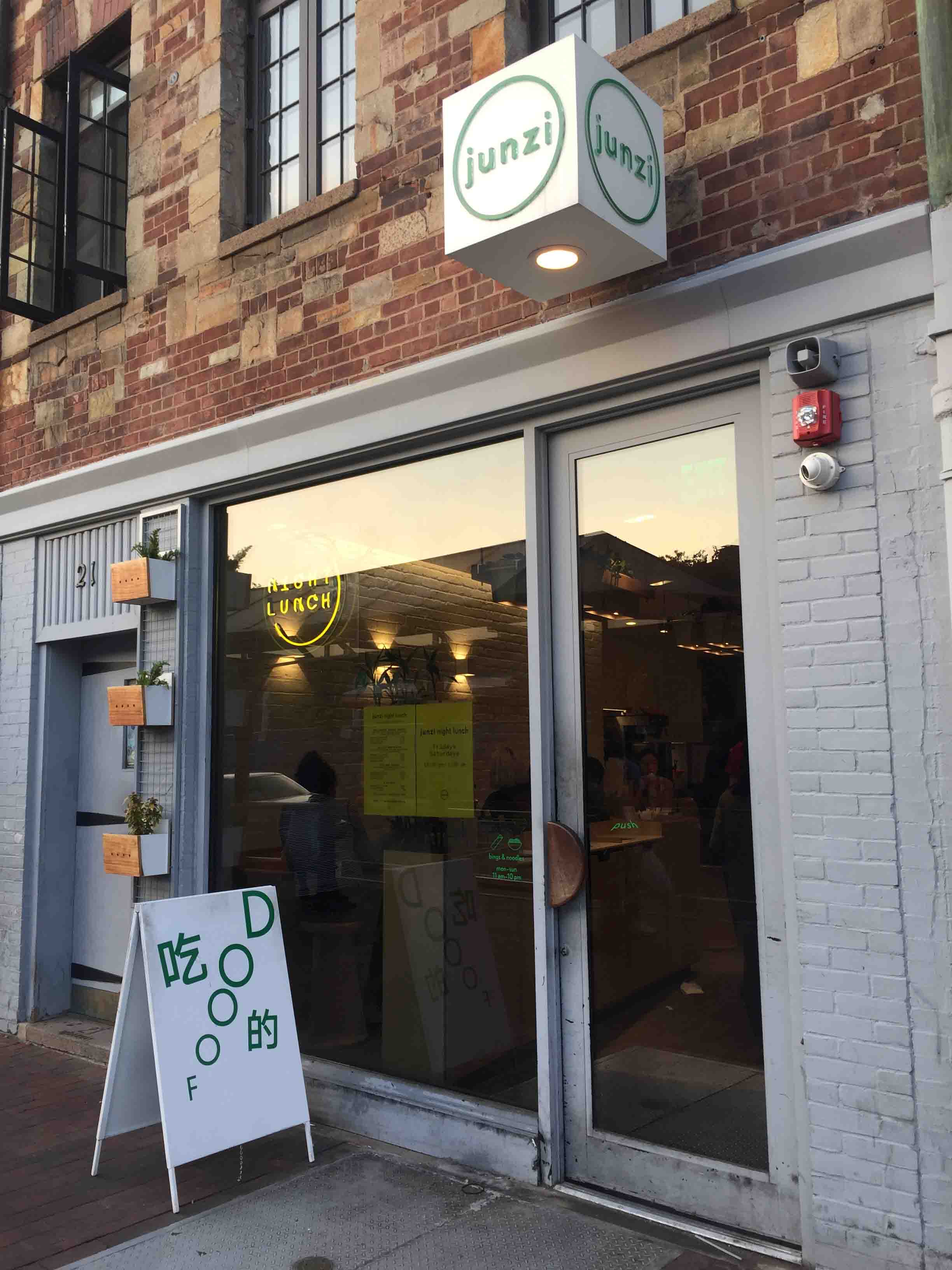
Junzi Kitchen, the quick-service Chinese restaurant that has become a student staple on Broadway Avenue, opened its first location in New York City over the summer and now plans to expand even further.
Junzi began serving bings and noodles near Columbia University on June 21. The restaurant — founded by Yong Zhao FES ’08 GRD ’15, Wanting Zhang FES ’11 and Ming Bai ART ’13 with the help of a $15,000 grant from the Yale Entrepreneurial Institute — now has two locations and will continue to grow, according to Zhao. He said Junzi’s management signed another lease this May, which will allow the restaurant to occupy a space near New York University in the coming months.
“There are so many urban spaces for our market,” Zhao said. “We know there is so much demand for a brand like us.”
After establishing two university campus locations in New York City, the co-founders plan to open two additional branches in the city’s business districts over the next few years, Zhao said. After that, Junzi Kitchen will set its sights on Boston, Washington and other parts of Connecticut.
In the two and a half months since Junzi has been operating both locations simultaneously, the owners have observed several distinctions.
The New York City restaurant’s sales are three to four times higher than those in New Haven, according to Zhao. New York bings and noodles cost $7.81 and $11.48, respectively, compared to New Haven’s prices of $5.88 and $9.88.
The Columbia shop also has a more spacious interior than the Yale location, sometimes attracting more families with their highchairs and strollers, according to Junzi Kitchen Marketing Director Reed Immer.
“It’s cool now to see the concept be able to breathe a little bit more in a larger space,” Immer said.
And the Columbia location will soon begin serving tea-based cocktails, while management continues to negotiate with its New Haven landlord to obtain a liquor license.
Still, the two restaurants also share many similarities.
As both restaurants operate near campuses, students make up a large portion of their clientele. During summer months, while school is out of session, the New Haven eatery sees a roughly 40 percent drop in sales traffic and the Columbia one a roughly 30 percent decrease, Zhao said.
And both have had a common customer: Esther Portyansky ’16, who now attends Columbia Law School a few blocks away from Junzi Kitchen.
“I like being able to support a Yalie’s start-up … it feels homegrown,” she said. “I’m proud to point out the Junzi at Columbia and say I knew them when they were just beginning.”
Soon, Yalies around the northeastern seaboard may have even more Junzi Kitchens to point to as they leave New Haven and enter the labor market.
As Junzi Kitchen moves outside college campuses to business districts and other urban settings, Zhao said the company will operate two marginally different stores. The first type will be like the ones near Yale and Columbia — flagship stores that focus on engaging customers with Northern Chinese culture through food and artwork within the store. The other stores and products will be more “common source,” working to combine Northern Chinese culture with the culture of the Western hemisphere, in effect creating a multicultural product, Zhao said.
Even with the two slightly different concepts going forward, Zhao said Junzi Kitchen will continue to focus on operating in culturally open areas, rather than places with less of an explorative nature.
“People from [culturally-open] backgrounds understand our brand more than people who love Panda Express,” Zhao said.
But both Junzi Kitchen and students will have to adapt when they move to their new environments.
When Portyansky entered the Junzi Kitchen near Columbia after she moved from New Haven to New York City, the shop had longer lines and more expensive prices than the Yale location, causing her to pass on the restaurant for the day, exiting without purchasing food.
“When I saw how much higher the prices were than at Yale, and how much longer the line was, I walked out. It didn’t seem worth it,” Portyansky said. “But as I get more used to [New York City] prices, I’m more likely to go back.”
But as the United States and its citizens become more receptive to products from other countries, Zhao said he believes Junzi Kitchen will be able to expand elsewhere in the future, outside the areas where it currently operates.
Junzi Kitchen opened at 21 Broadway Ave. in October 2015.
Myles Odermann | myles.odermann@yale.edu | @myles_odermann







